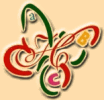 here
are two great anniversaries giving frame to the central theme
of the Frankfurt Book Fair that is entitled “Hungary without
Boundaries”.
here
are two great anniversaries giving frame to the central theme
of the Frankfurt Book Fair that is entitled “Hungary without
Boundaries”.
In the year 2000 Hungary celebrates the millennium of the formation of the state – it was a thousand years ago that Pope Sylvester sent the crown to Saint Stephen, our first king. Hungarians, that in major part were still heathens, were then admitted to belong to the Christian Europe.
The other jubilee could be summed up by the expression “ten years of democracy and European integration”. After communist leader János Kádár resented his position in April 1989 the gradual and sometimes conflict-evoking formation of democratic institutions and political parties as well as the gradual decomposition of the communist dictatorship started. The Hungarian Republic was proclaimed on 23rd October 1989 and the first free elections after those in 1947 were run in March/April 1990.
What does it all have to do with culture and the central theme? Culture has become a cause of today’s democracy by its life-and-death struggle against censorship and the state’s guardianship. In its messages a search for pluralism and justice without compromises were coming through or simply aesthetic values that were independent of political requirements.
Belonging to Europe was never doubtful in Hungarian culture. The title of our first modern literary journal was Nyugat (West) that was meant and understood to be symbolic – also containing a geographical self-definition. Endre Ady, Mihály Babits, Dezső Kosztolányi and other great authors were evidently adjusting to European values, without ignoring Hungarian traditions. Béla Bartók collected folk songs and created modern music. József Rippl-Rónai’s art was equal in rank to contemporary French painting and Sándor Ferenczi’s Budapest psychoanalytic school was in direct connection with Sigmund Freud.
The programmes through which Hungary as the seeded guest of this year’s Frankfurt Book Fair will be introduced present almost every tendency in today’s Hungarian literature and culture. “Hungary without Borders” – this slogan means openness towards the outside, towards the neighbouring peoples and cultures, but it also denotes openness within the country and hence recognition of every trend of style, tendency and artistic genre. As for the literary programmes, this openness means the widening of the spectrum. Apart from the authors already well-known and popular in Germany (like Magda Szabó, Imre Kertész, György Konrád, Péter Nádas, Péter Esterházy and István Eörsi) the country will present younger authors as well: literature that was made in the eighties and nineties. The works of Endre Kukorelly, László Garaczi, Attila Bartis, László Márton and Pál Závada are the examples to this. Authoresses will be represented in a greater number than before. In this spirit Györgyi Vándor who now lives in Vienna will be recalling her experiences from the years she spent in prison after the “Rajk” show trial. Further more, Katalin Horányi will come forward with her novel “Time Pressure” that won great success in Hungary, and the plot of which takes place in the seventies and eighties. Zsuzsa Vathy and Agáta Gordon will also present their novels, while Ágnes Relle who lives in Munich will be giving out a special edition of the journal “Horen”. Orsolya Kalász who chose Berlin as a place to live in and writes poetry in both German and Hungarian has prepared a collection of authors that were born after 1960. An anthology of gypsy poetry and the tales of Menyhért Lakatos Roma prose writer will come out, alongside with a number of books concerned with Jewish issues (among others Peter Haber’s book “The Jewish Budapest”). The works of authors who live outside the borders as members of the Hungarian minority (Lajos Tolnai, Lajos Grendel) will also appear. Classics and modern classics will be represented by prominent authors like Dezső Kosztolányi, Gyula Krúdy, Zsigmond Móricz and Miklós Radnóti. Two prose anthologies (‘Hungary from Monday to Friday’ and ‘Kingdom on the Edge’ – “Magyarország hétfőtől péntekig”, “Királyság a szélen”) will make today’s short story familiar. The novel series ‘Hungarian Century’ (“Magyar évszázad”) can be perceived as a literary reader of history.
This great variety is only possible because the German and Austrian publishing firms have “done their share”. More than ninety Hungarian books will be coming out in German language area. Three competitions and the special financial support have enabled and motivated approximately fifty Hungarian publishing companies to bring forward some of their editions in foreign languages, too. This wide scoped book programme will be presented in the events connected to literature – there will be 60-70 public recitals with a total of 100 authors participating in Frankfurt, Bad Berleburg, Ashaffenburg, Darmstadt, Heidelberg and in other cities.
 |
Frankfurt '99
Non-profit Organisation,
Budapest 1054 Báthori u. 10. Fax: +(36) 1 269 20 53 E-mail: frankfurt_99.kht@mail.matav.hu |
|